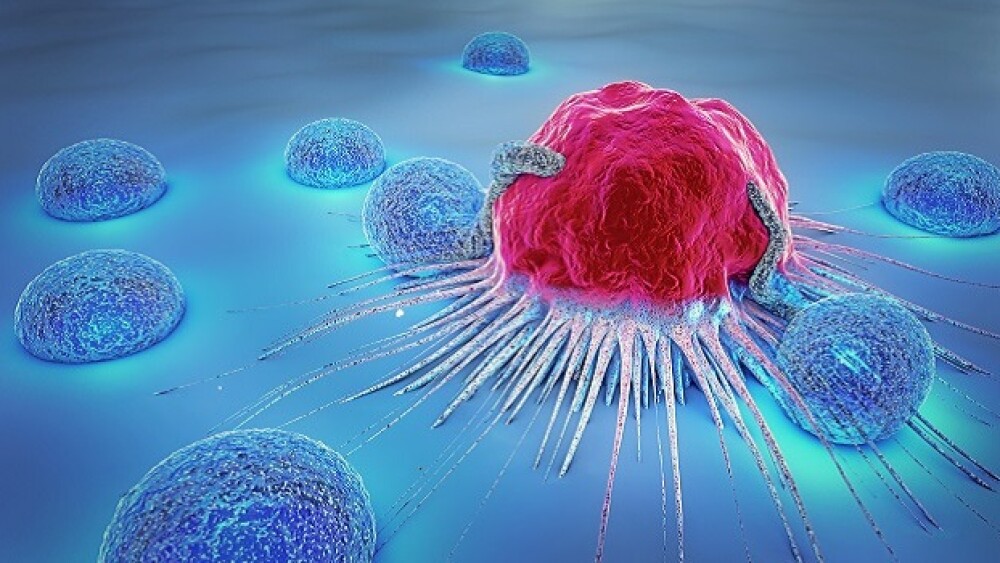Both “rare cancers” and “sub-populations of cancers” present a challenge to companies conducting clinical trials—finding enough patients for those trials.
Although different countries define them differently, in the U.S., a rare cancer is defined as six or less out of 100,000 people having that cancer. European regulatory agencies tend to classify a rare cancer as prevalence of fewer than five cases out of 10,000. The International Rare Cancers Initiative (IRCI) defines a rare cancer as a cancer with an incidence of three or fewer newly diagnosed people out of a population of 100,000 pear years.
One of the problems, though, is that biopharmaceutical companies are focusing their drugs for smaller and smaller and more clearly delineated patient populations. An example is in April, the U.S. Food and Drug Administration (FDA) approved AstraZeneca’s Tagrisso (osimertinib) for the first-line treatment of patients with metastatic non-small cell lung cancer (NSCLC) in tumors with epidermal growth factor receptor (EGFR) mutations, which will be detected by an FDA-approved test.
That’s the trend. And both “rare cancers” and “sub-populations of cancers” present a challenge to companies conducting clinical trials—finding enough patients for those trials. And getting insurers to pay for those tests before approval and after. As Bloomberg noted, “The new medicines aim to shrink tumors by targeting a rare genetic anomaly—appearing in 1,500 to 5,000 patients’ tumors in the U.S. annually—that can spur cancer’s growth. Bayer AG is out in front with a drug that could go on sale by the end of the year. Roche Holding AG is pursuing the same target.”
Here’s a look.
On June 19, Roche agreed to pay $2.4 billion to acquire the rest of Foundation Medicine (FMI), which focuses on genomic profiling. FMI specializes in testing for cancer, offering comprehensive genomic profiling tests.
In terms of the tests for the Roche drug, physicians would need to test about 100 patients to identify a single candidate for the drug. And the tests aren’t cheap, they run thousands of dollars per person.
Fabrice Andre, with the department of medical oncology at Institute Gustave Roussy near Paris, told Bloomberg, “The question of access is really a question of whether a doctor will decide to do the test. What is going to be the uptake of doctors to prescribe a test that detects one percent of the population?”
This is an aspect of personalized medicine, the much-publicized but slow-to-gain traction movement toward using broad genomic testing to identify the best medications and treatments for patients. For years drug companies worked to develop drugs that worked on the broadest population possible, somewhat out of necessity, because they didn’t have the genetic tools and insight to narrow them down. Now they do, and the trend is toward developing drugs for smaller and smaller patient populations.
Even though it answers the conundrum of why some patients respond to drugs and others don’t, it still costs millions of dollars to develop a drug, often for a smaller group of patients, which justifies higher price tags, along with, in many cases, expensive genomic testing.
Bayer, on its part, licensed larotrectinib from Loxo Oncology in November 2017 for $1.55 billion. Loxo filed with the FDA and expects to get an answer by November 2018.
About a month after that deal, Roche acquired Ignyta for $1.7 billion. Ignyta has a compound similar to Loxo’s, but aren’t as advanced in the development process. Roche is still evaluating the drug to determine how well it works.
Bloomberg writes, “Both target a genetic anomaly called TRK fusion, in which two genes join together to spur the production of proteins that make cancers grow. The challenge of finding patients is one of the reasons Loxo elected to partner with Bayer for larotectinib, said Jacob Van Naarden, the U.S. biotech’s (Loxo) chief business officer. Oncologists usually focus on tumors in one specific area, few have training in molecular testing, and many have never heard of TRK fusion, Van Naarden said.”
The genetic sequencing tests generally run from $1,000 to $3,000 per patient. Some institutions will only order the test if the insurance company will pay. Memorial Sloan Kettering, however, offers its version of those tests to everyone with advanced cancer, whether they can pay or not. David Hyman, chief of early drug development at Kettering told Bloomberg that when the cancer drug’s monthly price tag can be dramatically higher than the test price, determining who benefits the most “seems to me to be the best value in medicine right now.”
Identifying the mutations and patients’ appropriateness for these drugs, which can have price tags in the five- and sometimes six-figure range, is of value to payers, and helps justify the outlay.
Obviously, there are multiple problems. Finding the patients needed for clinical trials can be difficult, because there are few of them and the companies need to convince physicians to run screens for them. Once the drugs are regulated, the companies still need to convince physicians to run the tests to further narrow down the patient’s disease and treatment paradigm.
In March, Medicare and Medicaid agreed to pay Foundation Medicine for its test, which includes the TRK fusion genes. And Bayer’s partner Loxo is working with Illumina on a test that will evaluate 170 different genes.
Sandra Horning, Roche’s chief medical officer, told Bloomberg, “The overall goal indeed is to make such broad testing available to more patients and to make the results more actionable.”





